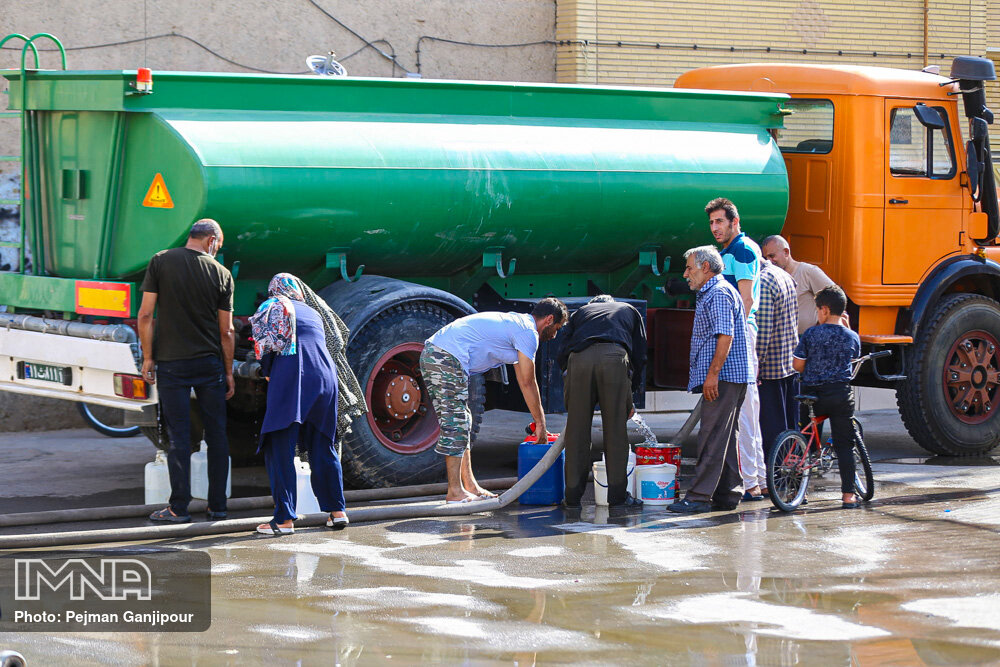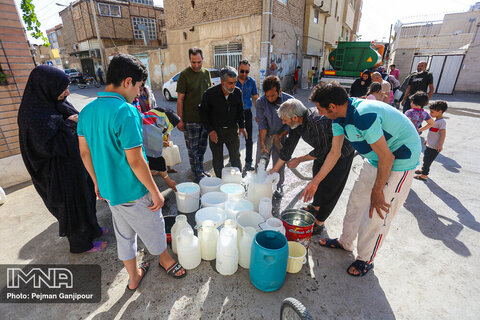Iran (IMNA) - To address this critical situation, an Emergency Appeal has been launched, focusing on providing assistance to approximately 800,000 individuals residing in the seven provinces most severely affected by this environmental phenomenons. These provinces include South Khorasan, Kerman, Sistan-Baluchestan, Hormozgan, Khuzestan, Isfahan, and Khorasan Razavi, with three of them sharing borders with Afghanistan. The humanitarian plan estimates that CHF 9 million will be required to fulfill the funding needs and aid the affected communities in overcoming these environmental hardships.
Iran Faces Drought Crisis: 4.8 Million at Risk Amidst Climate Change Challenges
Amidst a period of significantly lower rainfall compared to the previous year, Iran's main river basins have experienced substantial decreases in precipitation from September 2020 to July 2021. This nation, prone to frequent droughts, now confronts the possibility of more extreme conditions due to climate change.
Recent evaluations reveal that drought impacts, observed in the form of rainfall anomalies, have affected vegetation and agriculture, particularly in northeastern regions bordering Afghanistan. The Iranian Red Crescent Society (IRCS) estimates that 4.8 million individuals face medium to high risks of drought-related consequences, predominantly in remote and rural areas of various provinces.
Out of Iran's 31 provinces, 29 have been adversely affected by this drought, with seven provinces – South Khorasan, Kerman, Sistan-Baluchestan, Hormozgan, Khuzestan, Isfahan, and Khorasan Razavi – experiencing severe consequences. The lack of safe and sufficient water supplies for drinking, hygiene, agriculture, animal husbandry, and electrical power has led to a devastating and unsustainable strain on households' health, income, and social stability.
In response to this crisis, the IRCS initiated actions in July 2021, supported by the International Federation of Red Cross and Red Crescent Societies (IFRC) through the Disaster Relief Emergency Fund (DREF) with CHF 750,000. This funding aims to support the initial response efforts of the IRCS in preventing further deterioration of water insecurity and related health and livelihood issues for households and communities in four provinces until February 2022.

Drought Crisis in Iran: Exacerbating Humanitarian Challenges and Vulnerable Populations
The Iranian Red Crescent Society (IRCS) estimates that 4.8 million people are at medium to high risk of drought-related consequences, primarily affecting remote and rural areas across various provinces. This environmental disaster has led to widespread reliance on water trucking and bottled water for drinking purposes.
As a result, many individuals and households have been forced to migrate from rural to urban areas, causing the abandonment of villages and worsening living conditions in urban centers. The drought has further limited income-generating activities, increased staple food prices, and led to higher land and property rents for those with formal accommodation.
The IRCS highlights the drought's impact on exacerbating existing vulnerabilities and social marginalization of women. Women face additional burdens in their household responsibilities, while the migration of young men disrupts the gender balance in urban areas, potentially leading to increased gender-based violence and challenges in marriage prospects.
Children are particularly vulnerable in this crisis, facing heightened health risks such as skin and eye diseases, cognitive development issues, and respiratory problems related to the drought. The IRCS reports a threefold increase in vulnerable children over recent years, directly attributed to airborne dust and the lack of access to water for hygiene purposes.

As global citizens, it is our responsibility to recognize and address the pressing issue of Iran's drought. Climate change and its consequences are not confined by national borders, and the effects of this ecological crisis in Iran could potentially ripple across the globe. We must come together to support Iran and other nations facing similar challenges, as they work towards finding sustainable solutions to combat the adverse effects of climate change.
The drought in Iran serves as a stark reminder of the urgent need for global cooperation and action in addressing the growing ecological issues we face. It is imperative that we recognize the interconnectedness of our world and work collectively to mitigate the impacts of climate change on both local and global scales.


Your Comment